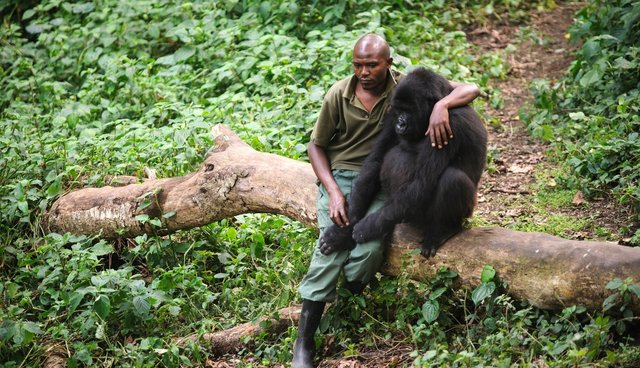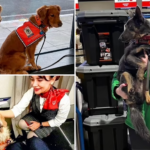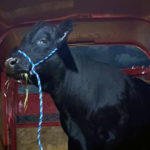Losing a parent is one of the worst experiences that a child can endure. Thanks to photographer Phil Moore, we can see that even animals grief when they lose a parent. Moore took a heartbreaking picture showing a park ranger hugging a gorilla that lost its mother. The gorilla’s mother was recently killed by poachers. Patrick Karabaranga is a ranger at the Virunga National Park in the eastern Democratic Republic of the Congo.
Read More: Goat Breaks In A House And Takes A Nap In The Bathroom
Virunga is in a region which has been deeply affected by the ongoing war and armed conflict for more than 20 years. However, more than 600 rangers are protecting the national park.
These rangers are the true heroes! They go through intensive training and risk their lives every day just to protect the animals who live in the national park, including the endangered mountain gorillas. Virunga is the home of 200 mountain gorillas, which is a quarter of the world’s gorilla population.
The heartbreaking photo shows that even gorillas have feelings and people have compassion for animals.
In the photo, Karabaranga sits and the gorilla that lost its mother is sitting on a tree in the park’s sanctuary. The gorilla’s hand is placed on Patrick’s leg, which is a sign of gratitude for the sympathy.
The gorilla and three other orphans were brought there after losing their mothers to poachers, or as a result of illegal attempts by traffickers to smuggle them out of Virunga.
The natural habitat of gorillas in the rainforest where they settle as families. They also have the same sense of belonging and are deeply hurt when they separate from their families and homes. Gorillas are like people!
Read More: Scientists Claim Painting Cows Like Zebras Has Surprising Benefits
Thanks to the people, mountain gorillas are critically endangered species. As a result of mass deforestation, many animals have lost their habitat. Almost every day, 80,000 acres of rainforest are destroyed because of profitable industries such as mining, logging, and agriculture. Unintentionally, logging companies support the illegal poachers who now have access to gorilla habitats and kill them for meat.
Although many people put their efforts together in order to restore the wild gorilla population, Moore’s picture shows that there is still much to be done.






